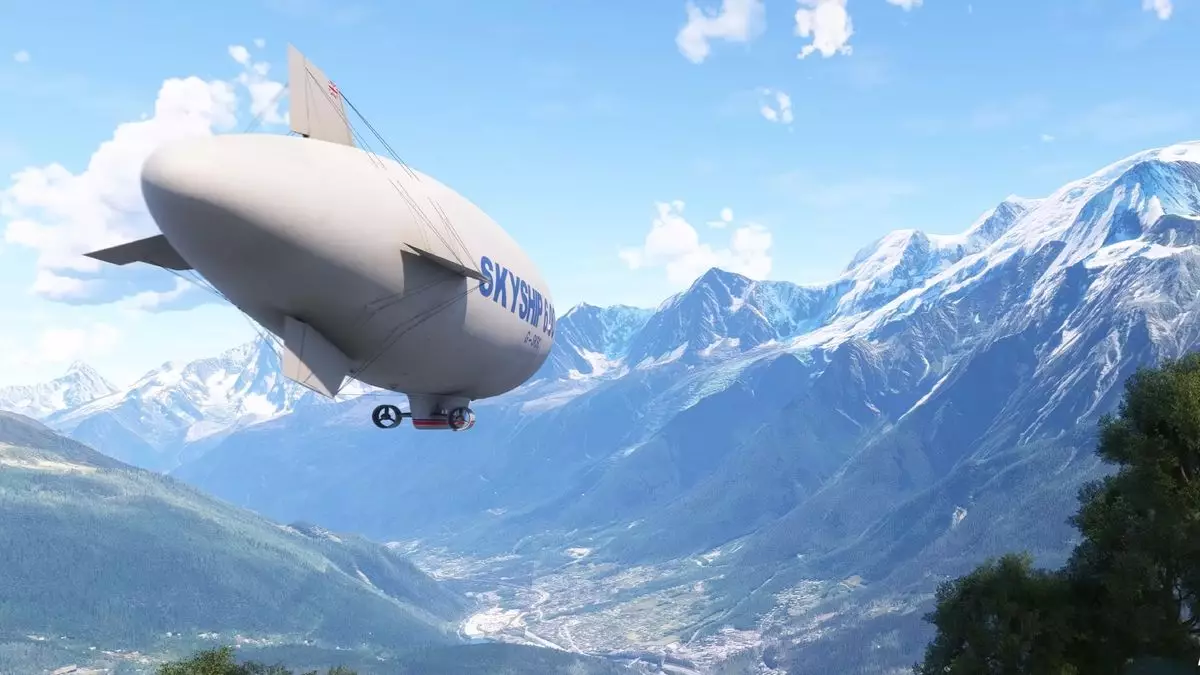As the anticipation builds for the release of Microsoft Flight Simulator 2024 on November 19, 2023, many gaming enthusiasts are eager to know if their existing hardware can handle this ambitious entry in the beloved simulation franchise. According to official details shared via Microsoft’s social channels, the system requirements provide a refreshing sense of accessibility, enabling even those with older setups to participate in the flying experience.
The minimum system requirements indicate that even a rig assembled nearly a decade ago might still have enough muscles to run the latest version of Flight Simulator. With an Intel Core i7-6800K processor paired with a GeForce GTX 960 graphics card, alongside a requisite 16 GB of RAM, players can dive into the immersive world depicted in the game. This opens the doors for many who may have held onto their older gaming rigs, revealing that you don’t necessarily need the latest technology to enjoy an impressive flight simulation experience.
However, for those longing for a more enriched experience, the recommended specifications are for a setup featuring 32 GB of RAM, an RTX 2080, or a Radeon RX 5700XT. While these requirements are more demanding, they still seem relatively tame when considering the visually stunning graphics and vast open environments that Microsoft Flight Simulator always promises. The inclusion of physically modeled pilots and revamped physics engine further enhances the overall gameplay, giving it a robust feel that casual gamers and enthusiasts alike will appreciate.
One standout feature of Microsoft Flight Simulator 2024 is its demand for higher RAM compared to storage. This is contrary to the usual trend where games burden systems more with extensive storage requirements. Microsoft suggests an “ideal spec” boasting 64 GB of RAM and just 50 GB for storage, setting a precedent in modern gaming. This shift is particularly noteworthy, resulting from advanced cloud technology that optimizes data storage and minimizes the need for a significant physical footprint on hard drives. The previous iteration of Flight Simulator, bogged down with patches and updates, could swell to ten times this new version’s size, demonstrating how innovative approaches lend favorably to gamers looking for streamlined experiences.
Pricing and Editions
For consumers considering acquiring Microsoft Flight Simulator 2024, the pricing structure presents various options tailored to different gaming preferences. Ranging from the Standard Edition at $70 to the Premium Deluxe Edition at $130, the game offers an array of features, with the Deluxe and Premium editions enhancing the number of available aircraft and airports. The Aviator Edition takes the cake at $200, combining everything from the Premium Deluxe Edition while expanding the total aircraft count further, providing an impressive array of flying options.
Interesting to note is the digital-only nature of the $200 Aviator Edition. Historically, collector’s editions have come packed with physical goodies, such as model aircraft or collectibles; however, this version eschews those trinkets, making it a modern digital release. While this might disillusion some traditional collectors, the sheer amount of content available for a price point significantly lower than historically overpriced collector’s editions stands out.
Microsoft Flight Simulator 2024 appears poised to provide an exhilarating and immersive flight simulation experience while being surprisingly gentle on system requirements. As modern technological advancements alter the gaming landscape, this iteration encourages existing gamers to embrace the tech they already possess, rather than feeling pressured to invest in fresh components. With a structured pricing model for varying experience levels, the game marks a significant step not just for flight simulation but also for the ongoing evolution of gaming accessibility. As the gaming community gears up for its release, it beckons both seasoned and novice pilots to experience the skies like never before.

